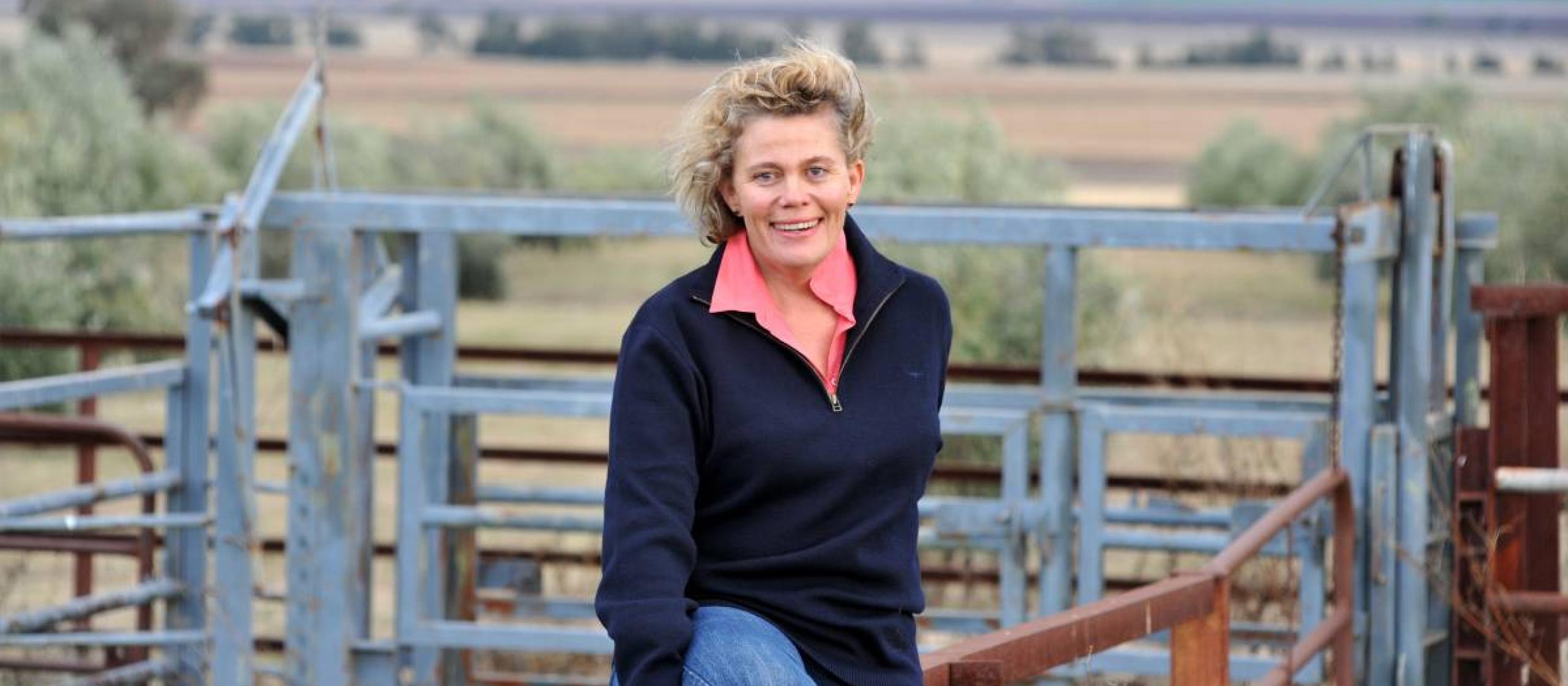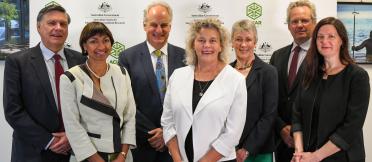- HomeHome
-
About ACIAR
- Our work
- Our people
-
Corporate information
- ACIAR Audit Committee
- Commission for International Agricultural Research
- Policy Advisory Council
- Agency reviews
- Executive remuneration disclosure
- Freedom of information (FOI)
- Gifts and benefits register
- Information publication scheme
- List of new agency files
- Contracts
- Legal services expenditure
- Privacy impact assessment register
- Commonwealth Child Safe Framework
- Benefits to Australia
- Careers
- 40 years of ACIAR
-
What we do
- Programs
- Cross-cutting areas
- Resources
- Where we work
-
Funding
- Research projects
- Fellowships
-
Scholarships
- John Allwright FellowshipScholarships to study in Australia for ACIAR partner country scientists to have Australian postgraduate qualifications
- ACIAR Pacific Agriculture Scholarships and Support and Climate Resilience Program
- Alumni Research Support Facility
- Publications
- News and Outreach
Date released
16 December 2020
Speaking via video call from the verandah of her home in rural New South Wales, she is clearly inspired by the outcomes ACIAR projects generate.
‘I’ve long been impressed by the work of ACIAR. For an organisation of its size, with a relatively small budget, its impact—the positive outcomes it generates—is incredible,’ says Ms Simson.
‘The model is a win-win. We share the knowledge of our world-class research institutions with farmers in developing countries to build their capacity and ability to be self-sustaining. It is so powerful.’
A farmer—in partnership with her husband Ed—Ms Simson is the first female President of Australia’s National Farmers’ Federation and is leading the organisation and industry through a significant period of change.
‘Farming is an industry of the future, and through collaboration and innovation, we can ensure it’s sustainable,’ she adds.
Ms Simson first experienced the value of supporting farmers in developing countries with the World Farmers’ Organisation years ago, and a project that targeted women farmers in Zambia.
‘The project worked with these farmers, educating them about how to grow a more productive crop for their family, but also enough for one more family,’ says Ms Simson.
‘Seeing the outcome of this first-hand was incredible. It’s not just a one-off injection of cash but creating long-term, sustainable change and improvement in the lives of these women and their families.’
Ms Simson says the opportunity to contribute to ACIAR and be part of an organisation fully focused on such outcomes was too good to pass up.
‘I’m thrilled to be given the opportunity to be involved. The positive outcomes of sharing targeted research and development with developing countries are significant.’
Ms Simson is quick to point out that Australia’s agricultural research and development talent and institutions are among the world’s best.
‘But what makes us different? I think the challenging nature of farming in Australia has fostered research and development that’s practical,’ she says.
‘ACIAR is central to the transfer of that innovation in ways that work on the ground in developing countries. To share what can make such a difference at a local and regional level.
Mutual benefit
‘Being a good neighbour’ is part of Australian agriculture’s culture, and farmers understand the benefits that flow both ways from providing practical support, Ms Simson says.
‘Yes, ACIAR work helps our neighbours, but it’s a mutually beneficial arrangement.
‘The capacity and capability of these farmers plays a vital role in the health of agriculture in our region.’
I’ve long been impressed by the work of ACIAR. For an organisation of its size, with a relatively small budget, its impact—the positive outcomes it generates—is incredible.
Fiona Simson
As examples of the benefits of regional collaboration, she points to the essential labour that seasonal workers from ACIAR partner countries provide Australian farmers—‘never before has this been more apparent than in 2020’—and the importance of a regional approach to maintaining the biosecurity shield that protects Australian agriculture.
‘Through working together, we can achieve more and better outcomes for all,’ she says.
Future focus
Diversity was a focus of the previous Commission and one Ms Simson says is worthy of continued prioritisation.
Ms Simson has long been a strong advocate for promoting and celebrating diversity in Australian agriculture. In 2018 she was instrumental in the launch of the National Farmers’ Federation’s highly successful Diversity in Ag Leadership Programme which seeks to encourage more women and young people into agriculture.
‘Women play a significant role in agriculture throughout the Indo-Pacific region. We need to understand and acknowledge that role and consider how our projects can best support that,’ she says.
Ms Simson also sees alignment between the Commission and her role as President of the National Farmers’ Federation.
‘I think there is an opportunity to continue to raise the profile of ACIAR among Australian farmers and explore whether there is a logical step to build even closer links with targeted research projects that involve our farmers, too.’
What’s first?
At the time of writing, the new Commissioners had met just once and Ms Simson says, first and foremost, they are keen to understand how the coronavirus pandemic is affecting ACIAR operations.
‘Naturally there has been some impact on the ability of people to travel but we’ve been really impressed to see that the switch to the virtual environment has been a relatively smooth one for ACIAR.’
Ms Simson says having people in-country has been key to this transition and acknowledges the significant adaptability of the Australian-based team.
While I’m really keen to see some of these projects first-hand, it’s a credit to the ACIAR team to know their good work, and the contribution that Australia is making through sharing agricultural research and development in developing countries, is on-going despite the impact of COVID.
Ms Fiona Simson
Key points
- Newly appointed Chair of Australia’s International Commission for Agricultural Research, Fiona Simson, says there is an opportunity to raise the profile of ACIAR among Australian farmers.
- Working with ACIAR partner countries is mutually beneficial, helping farmers and improving the health of agriculture more broadly.
ACIAR welcomes new Commissioners
Four new and three reappointed Commissioners now form Australia’s Commission for International Agricultural Research.
Australia’s Minister for Foreign Affairs, Senator the Hon. Marise Payne, selected the appointments.
The Commission provides expert, strategic advice to the Minister on priorities for Australia’s international agricultural research program—particularly the work of ACIAR.
The Commission now comprises:
- Ms Fiona Simson (new)
- Professor Lindsay Falvey (new)
- Dr Beth Woods (new)
- Mr Tony York (new)
- Ms Su McCluskey (appointed for second term)
- Dr Sasha Courville (appointed for second term)
- ACIAR CEO Professor Andrew Campbell (currently serving)
Future issues of Partners will profile the new Commissioners.




